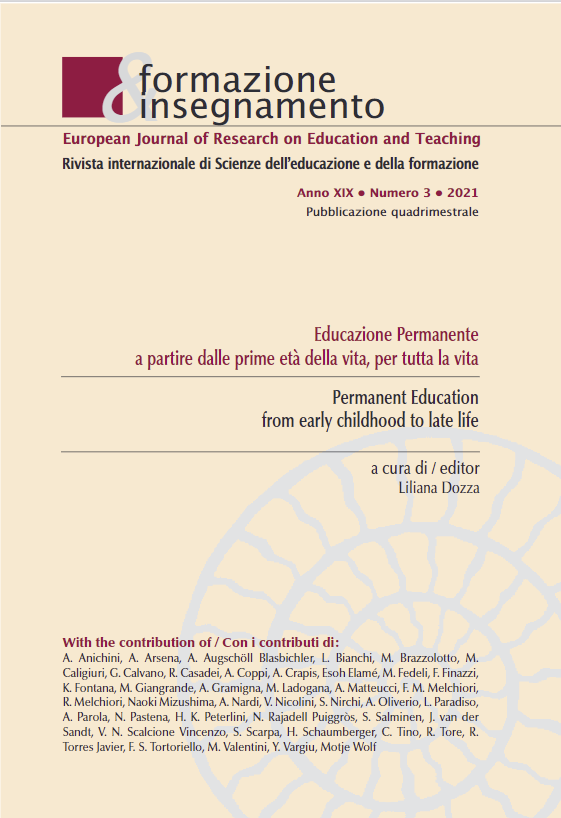Motivating factors in lifelong learning: perseverance as a case study
DOI:
https://doi.org/10.7346/-fei-XIX-03-21_09Abstract
Non-cognitive factors can generate lack of interest and consequent low motivation to invest in one’s skills after the formal educational period, such as for inclusion in training/lifelong learning pathways or for achieving academic or work success. One particular non cognitive-factors, the construct of grit (perseverance), defined as the tenacity to persist in the face of challenges
and difficulties in order to achieve desired results, was measured through a psychometric instrument administered to adults enrolled in vocational courses at a CPIA (n = 127). The research hypothesis (H1) is that Grit is a construct to be operationalized differently for this type of population, precisely because at an advanced stage of life, individuals possess varied self-control,
conscientiousness, and above all, a diverse ability to achieve long range goals over time. As hypothesized, the results obtained highlight that the Grit-Short Scale is inconsistent ( = 0.404) and possesses poor construct validity, making it necessary to revise or develop from scratch a more appropriate psychometric measurement tool to be able to intervene to support the activities of
individuals in adulthood and older for whom the presence of perseverance is a valuable resource in reaching wellbeing.
Downloads
Published
How to Cite
Issue
Section
License
Copyright (c) 2022 Pensa MultiMedia

This work is licensed under a Creative Commons Attribution 4.0 International License.
Formazione & insegnamento is distributed under Attribution 4.0 International (CC BY 4.0).
For further details, please refer to our Repository & Archiving Policy, as well as our Copyright & Licensing Terms.





